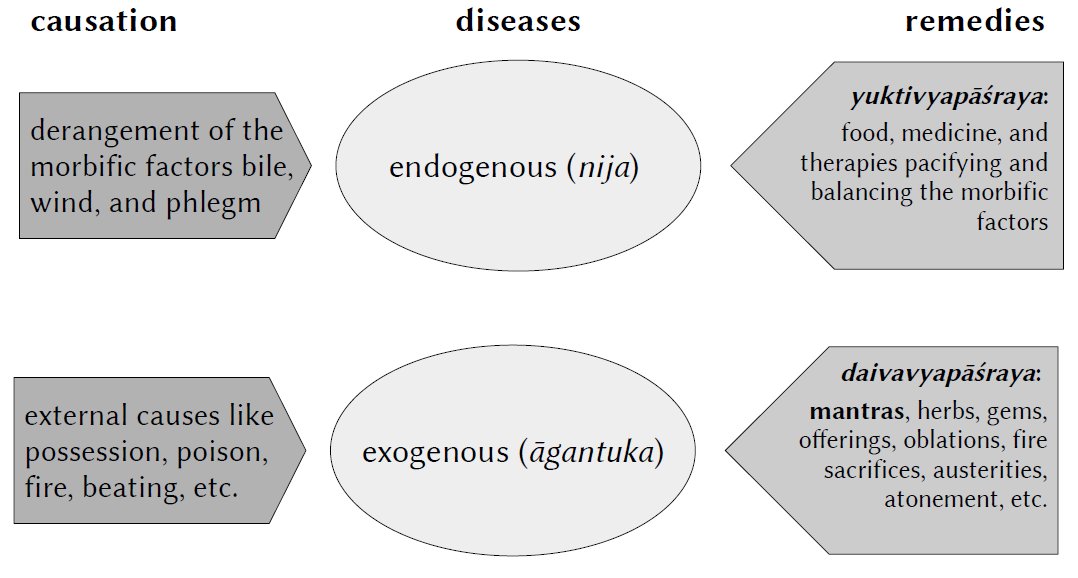
Someone recently asked me why I, conducting a project on #epidemics, write a paper on #mantras in #Ayurveda. Here is the reason: Early South Asian medical compilations discuss epidemics and how to treat them. They suggest various countermeasures …
Besides more "medical" remedies they suggest also truthfulness, compassion, #mantras, offerings, fasting, atonement, veneration of gods, certain rituals etc. – measures belonging to the class of remedies "depending on the supernatural" (daivavyapāśraya).
In Ayurveda, remedies are usually differentiated into those "depending on logical principles" (yuktivyapāśraya) and those "depending on the supernatural". The former help to balance the bodily humors, the latter shall primarily check all kinds of exogenous harm. 

As in the case of epidemics remedies from both classes are employed, it was apparently not decided if epidemics should be understood as caused by a collective imbalance of bodily humors or by exogenous factors like poisoning, violence, unrighteousness, or demonic possession. 

As mantras are a widely prescribed remedy from the daivavyapāśraya class, they are perfect markers to investigate this concept of remedy classification throughout the works of Ayurveda. A concept that is highly relevant for the understanding of epidemics in premodern South Asia.
And here is a stanza from the Bhelasaṃhitā (~150 CE), recommending the recitation of mantras as a protective measure in times of epidemics: tatropavāsī dhṛtimān rato viprābhivādane /
mantrauṣadharataś cāpi janamārāt pramucyate. // (BhS 1.13.9)
mantrauṣadharataś cāpi janamārāt pramucyate. // (BhS 1.13.9)

My translation: In this case, the steadfast one, who is fasting, engaged in salutation to the sages, and also engaged in mantras and herbs will be liberated from the epidemic.
@threadreaderapp unroll
• • •
Missing some Tweet in this thread? You can try to
force a refresh



